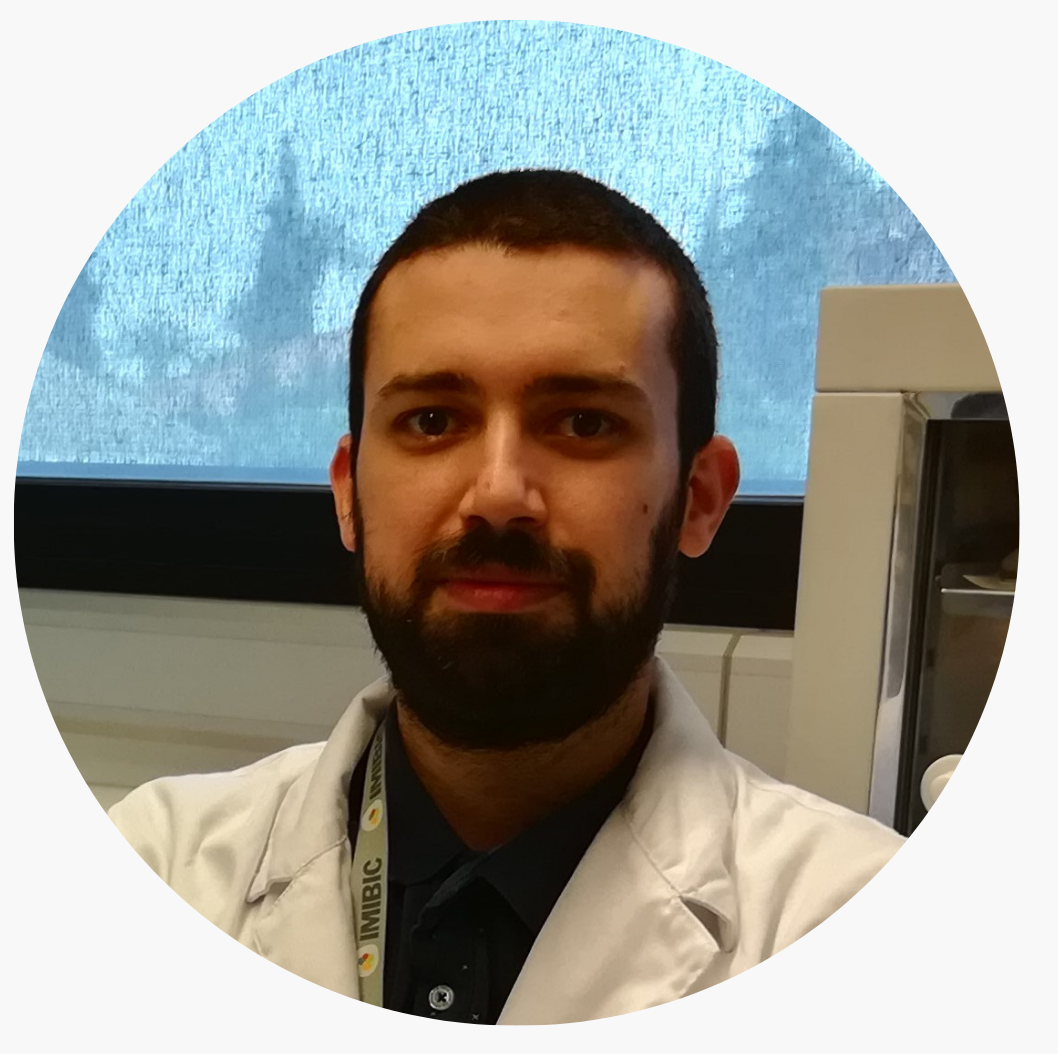 André Morais Sarmento Borges Cabral (PhD) works in the group GC27 OncObesity and Metabolism, led by Dr. Raúl M. Luque Huertas (PI) and Dr. Manuel David Gahete Ortiz (Co-PI). His project is titled ProsCanGO – Role of GOAT/Ghrelin system in the pathological interaction between obesity and prostate cancer: Identification of novel personalized diagnostic, prognostic and therapeutic targets. The expected results include the definition of the key molecular and endocrine-metabolic mechanisms linking GOAT/ Ghrelin system with prostate cancer and obesity and generation of knowledge that will help with the design of new personalised diagnostic tests, predictive markers, and therapeutic targets for prostate cancer. The project will last for 3 years, from March 2021 till March 2024.
André Morais Sarmento Borges Cabral (PhD) works in the group GC27 OncObesity and Metabolism, led by Dr. Raúl M. Luque Huertas (PI) and Dr. Manuel David Gahete Ortiz (Co-PI). His project is titled ProsCanGO – Role of GOAT/Ghrelin system in the pathological interaction between obesity and prostate cancer: Identification of novel personalized diagnostic, prognostic and therapeutic targets. The expected results include the definition of the key molecular and endocrine-metabolic mechanisms linking GOAT/ Ghrelin system with prostate cancer and obesity and generation of knowledge that will help with the design of new personalised diagnostic tests, predictive markers, and therapeutic targets for prostate cancer. The project will last for 3 years, from March 2021 till March 2024.
Prostate cancer (PCa) is a major health threat, the most common malignancy in men and a leading cause of cancer-related death. Unfortunately, early detection and clinical management of PCa face severe limitations. Lack of specific diagnostic/prognostic markers causes under-diagnosis and overtreatment, and patients are often unresponsive or develop resistance to existing therapies.
This project aims to develop a novel approach to improve personalized PCa management, using the endocrine-metabolic ghrelin system. Two components of this system, Ghrelin O-Acyl Transferase (GOAT) enzyme and In1-ghrelin (In1) variant were shown to be overexpressed in and secreted from PCa by the host group. In their pilot tests, GOAT/In1 plasma/urine levels can distinguish between PCa and healthy subjects, especially when stratified by obesity, a relevant risk factor for PCa.
Here, it is proposed to deploy a comprehensive and innovative analysis of the pathological role of GOAT/In1 in PCa as a tool to identify novel integrative and tailored PCa biomarker fingerprints, enabling the development of better diagnosis/prognosis tools and therapeutic targets to combat PCa. To this end, a transdisciplinary, integrated project is proposed to: 1) collect and analyze samples (normal/PCa tissue, blood, urine) from retrospective (n=1070) and prospective (n=350) cohorts of early and advanced PCa patients; 2) identify novel markers through cutting-edge approaches (microfluidic-based qPCR quantifying 96 transcripts in 96 samples simultaneously); 3) interrogate the role of selected molecules in preclinical models; 4) use cell systems to mechanistically clarify molecular questions.
Finally, the information obtained will be integrated and bioinformatically modeled to define the key molecular and endocrine-metabolic mechanisms linking GOAT/In1 system with PCa and obesity, and, most importantly, to design new personalized diagnostic tests and define predictive markers and therapeutic targets for PCa patients.
The main objective of ProsCanGO is to develop a radically innovative approach to improve personalised Prostate Cancer (PCa) diagnosis by defining new integrative diagnosis biomarkers with prognostic and predictive capabilities. The global aim is to valorize the utility of GOAT/In1-ghrelin (In1) for the early PCa detection, define their roles in PCa pathogenesis and expoite their potential predictive/therapeutic utility. The project is structure into three distictive but interrelated specific objectives, excecuted in an interactive manner by deploying an ample repertoire of multidisciplinary state-of-the-art analyses on samples obtained from multicenter human clinical studies and innovative animal/cellular models.
Objective 1: To valorize the role of GOAT/In1 and to identify novel, complementary biomarkers to be used as non-invasive diagnostic fingerprint of PCa.
Objective 2: To define the potential of GOAT/In1 and associated factors identified in Objective 1 as clinical predictors of progression, aggressiveness and response to treatment of PCa.
Objective 3: To explore the regulation, oncogenic role, mechanism of action and potential therapeutic utility of PCa of GOAT/In1 and associated components identified in objectives 1 and 2. To identify the regulatory mechanism of these elements, exploring putative genomic SNPs/methylation patterns expression in PCa cells.
Dissemination activities
European Researchers’ Night 2023
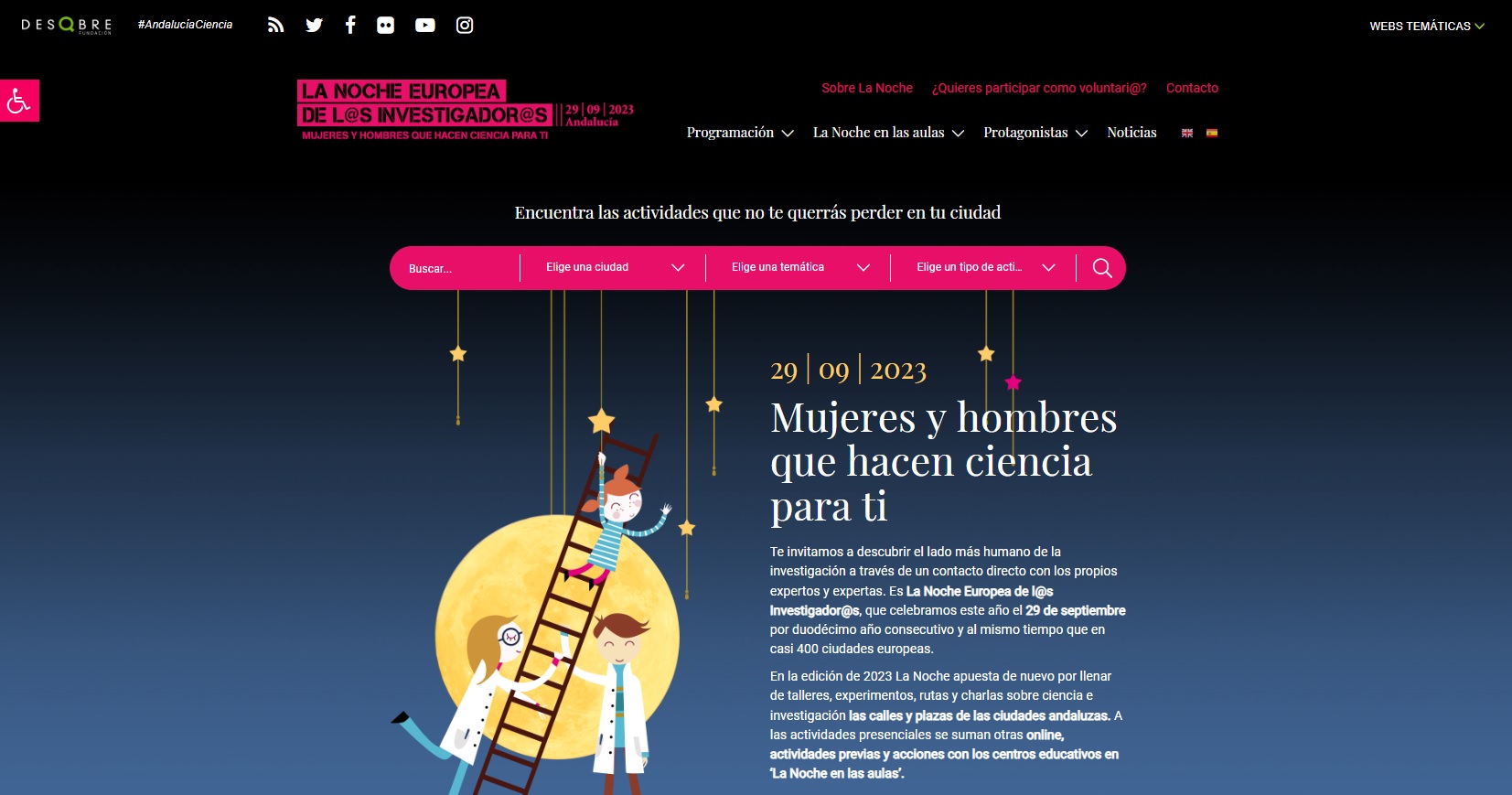
This year André has doubled his participation in this popular activity with the general public He participated on 27 September in a very interesting meeting at the internationally renowned Patios de Córdoba to debate with 15 participants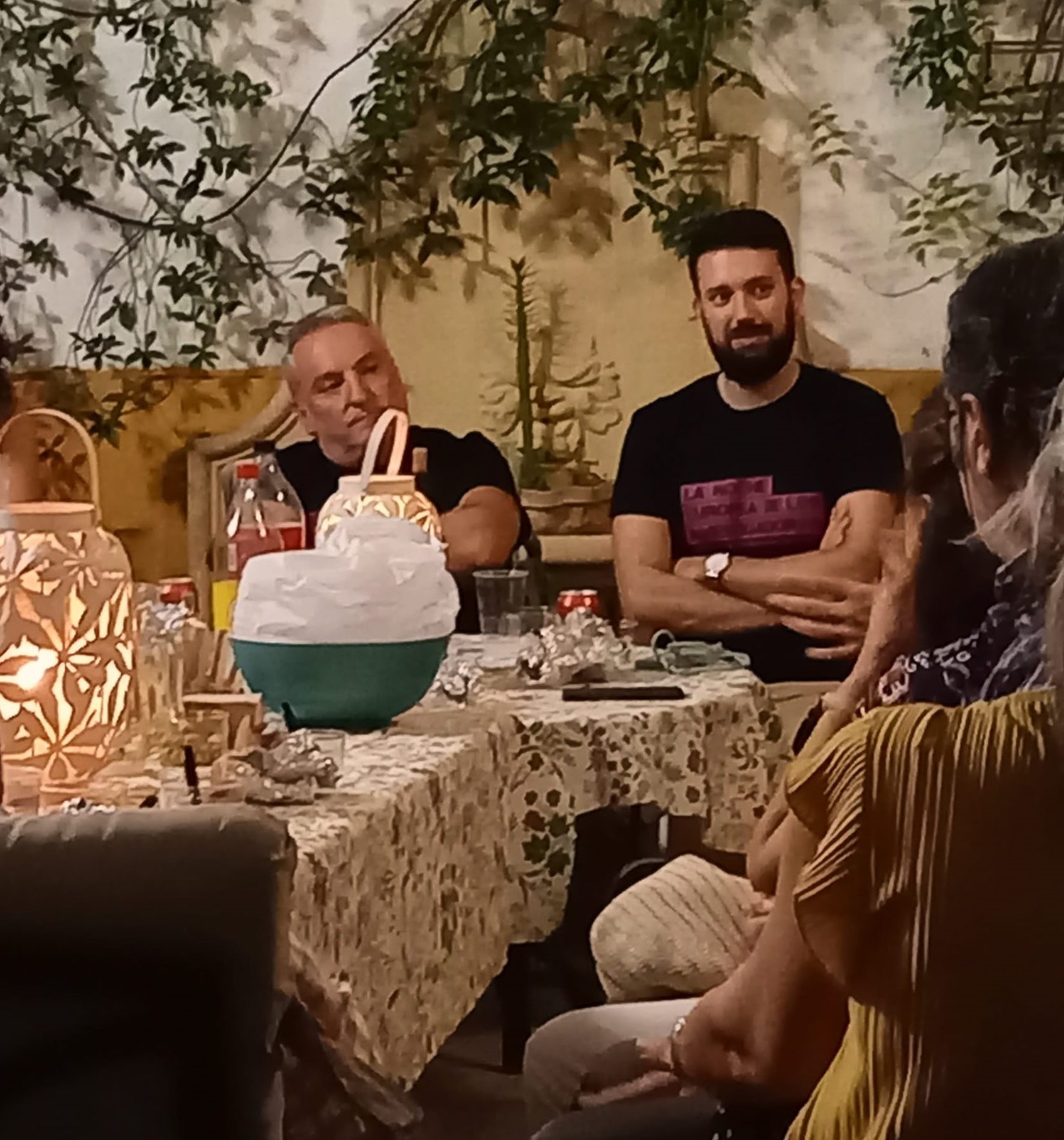 about “A healthier society is possible: biomedical research to fight cancer and obesity“. They talked about new strategies to face up this epidemy of the XXI century, and of new research lines, new therapy targets, the use of virus that infect and destroy tumours, as well as the role of hormonal changes in the onset of metabolic diseases like obesity, diabetes and some types of cancer.
about “A healthier society is possible: biomedical research to fight cancer and obesity“. They talked about new strategies to face up this epidemy of the XXI century, and of new research lines, new therapy targets, the use of virus that infect and destroy tumours, as well as the role of hormonal changes in the onset of metabolic diseases like obesity, diabetes and some types of cancer.
Later on 29 September he was also part of the  large team that took on explaining about cells in the open event “Learning from the cell“, which was organised at the main University building. They used day-to-day lab material and microscopes to show the public about tissue structure, cells cultures and basic biochemical experiments.
large team that took on explaining about cells in the open event “Learning from the cell“, which was organised at the main University building. They used day-to-day lab material and microscopes to show the public about tissue structure, cells cultures and basic biochemical experiments.

European Researchers’ Night 2022
In this workshop on the 30th of September at 7pm, André and other researchers will teach kids about the materials that are normally used in a laboratory, such as pipettes, optical microscopes and cell culture materials. Children will get a chance to perform biomedical experiments and learn about the structure of DNA.
More information here.

André was invited to talk about his study of new biomarkers for diagnostics of prostate cancer in the programme “Researchers around the world”.
Listen to the interview [in spanish] here!
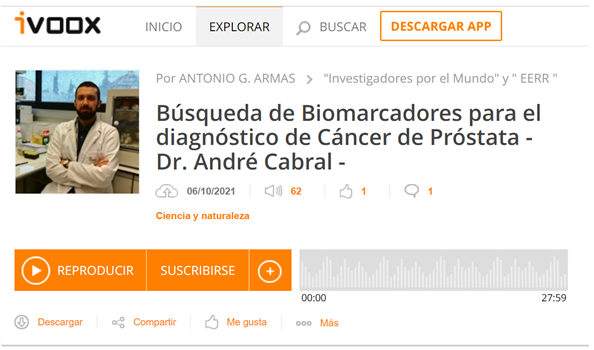

Open Access publications
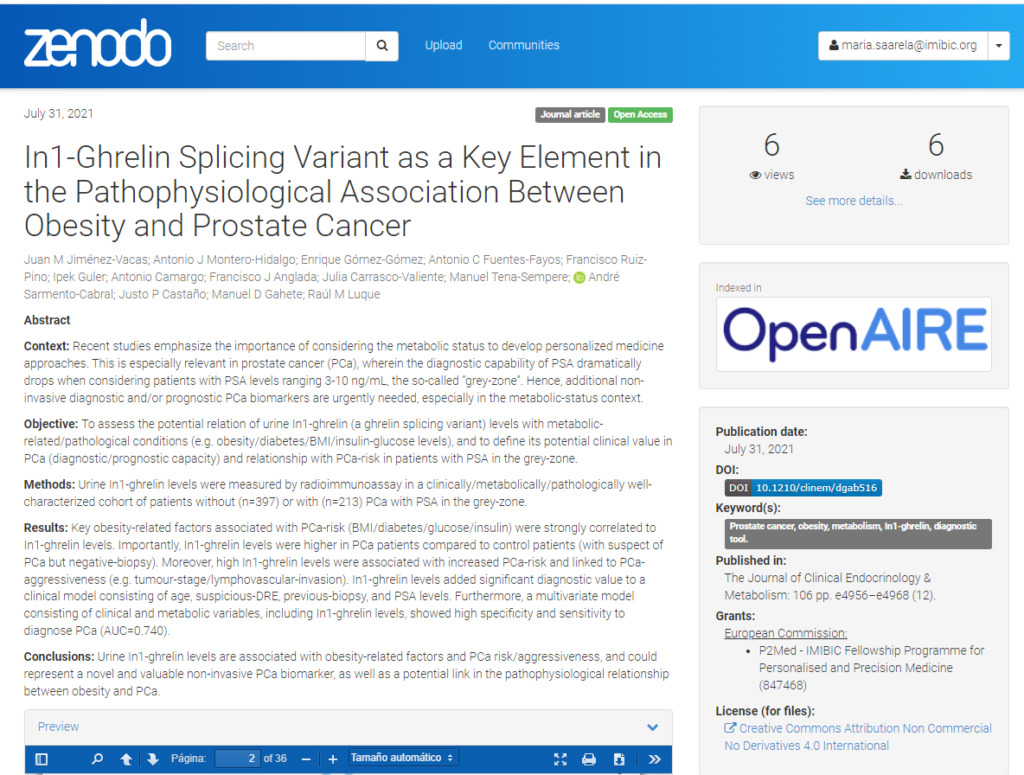 In1-Ghrelin Splicing Variant as a Key Element in the Pathophysiological Association Between Obesity and Prostate Cancer.
In1-Ghrelin Splicing Variant as a Key Element in the Pathophysiological Association Between Obesity and Prostate Cancer.
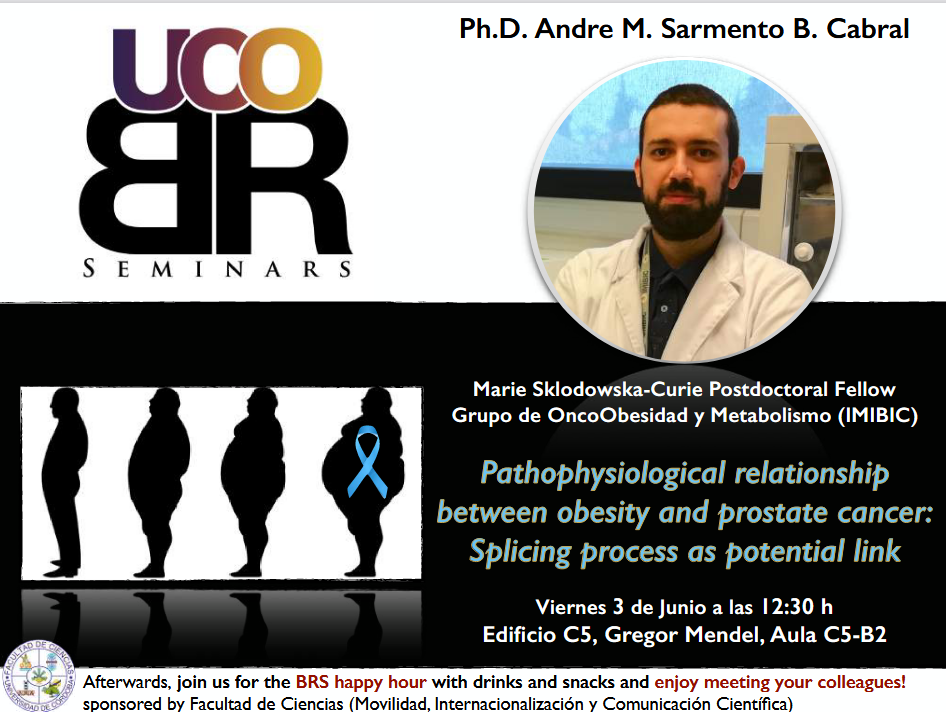
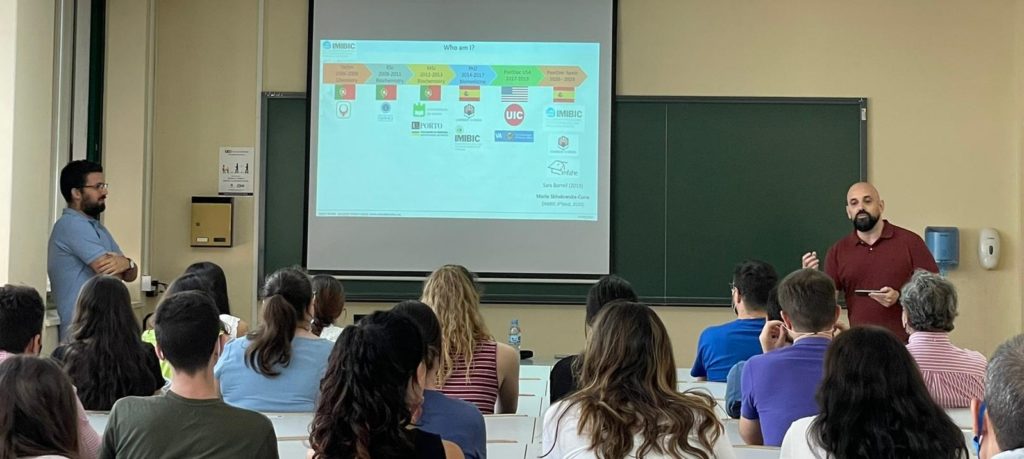


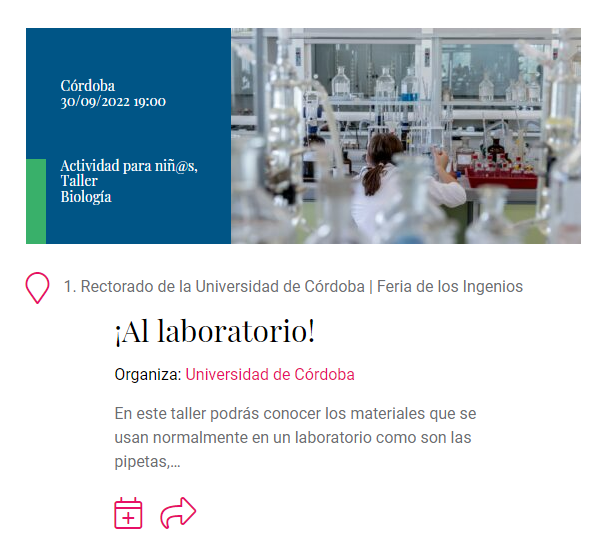
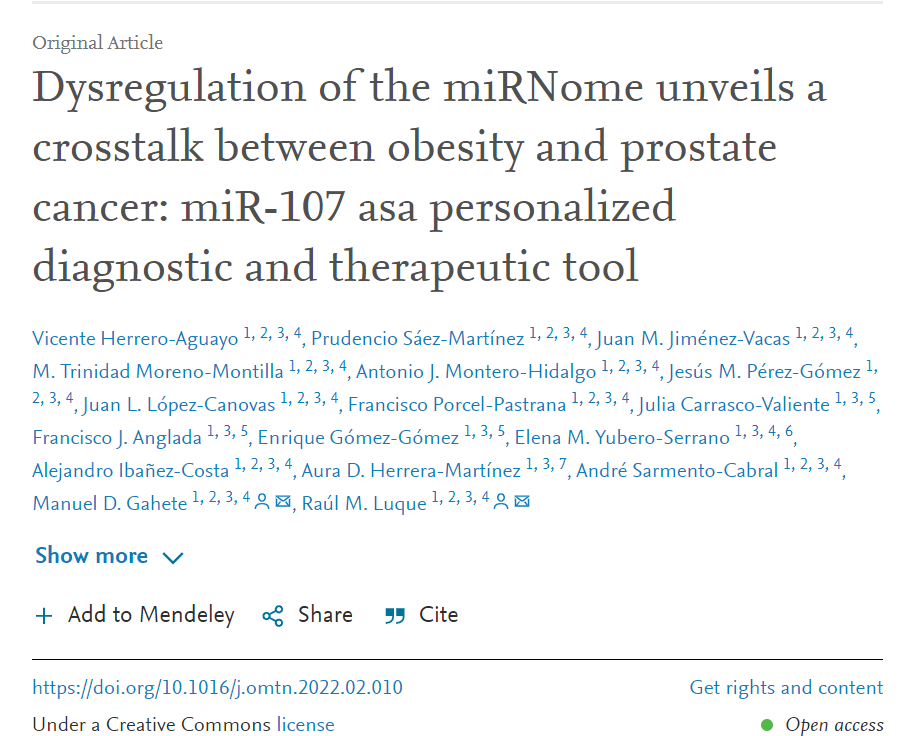 crosstalk between obesity and prostate cancer: miR-107 as a personalized diagnostic and therapeutic tool.
crosstalk between obesity and prostate cancer: miR-107 as a personalized diagnostic and therapeutic tool.